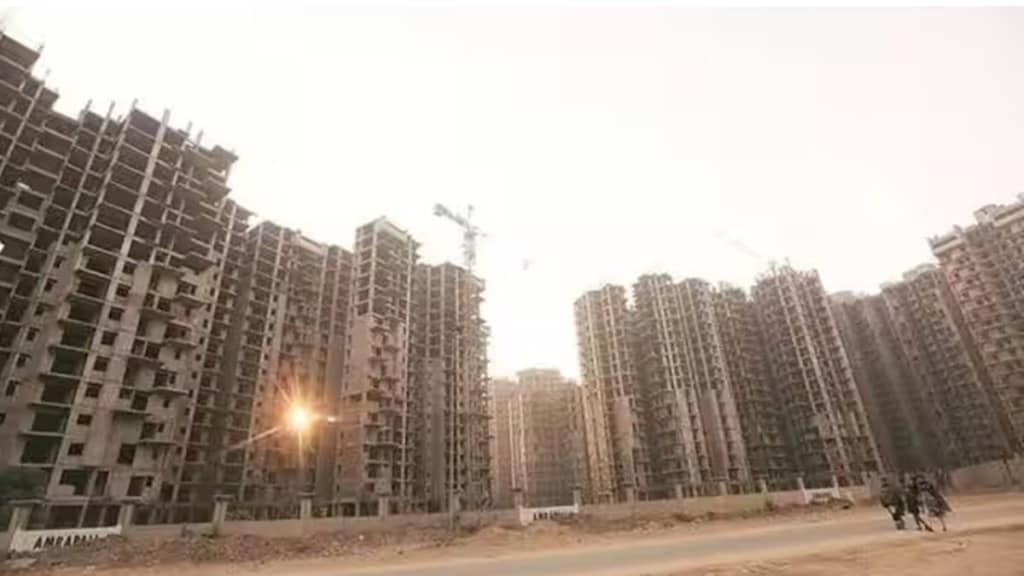The construction ban due to extreme pollution in the National Capital Region (NCR) and some projects in Mumbai could lead to delays in delivery and pose labour challenges, according to industry players and investors.
With the air quality falling to ‘severe’ levels in the NCR, the Commission for Air Quality Management (CAQM) has invoked stage III of the Graded Response Action Plan (GRAP), which includes a ban on all non-essential construction and demolition activities in Delhi-NCR. Delhi’s AQI has remained around 350 and it is likely to deteriorate further and reach the severe category.
Similarly, the Brihanmumbai Municipal Corporation (BMC) issued guidelines to developers to adhere to certain norms to contain air pollution on October 25.
The guidelines included several measures that construction sites must take to minimise their impact on air quality. BMC asked construction sites to ensure that at least 35 feet high tin or metal sheets are erected around the periphery of construction projects having a height of more than 70 metres. It also issued stop work notices to Prestige Estates for flouting air pollution norms in its Mulund project. An email sent to Prestige on the subject did not elicit any response.
Said Mohit Goel, managing director of Omaxe group: “Though (the ban) it is the need of the hour from the point of environment, for the real estate sector, it will pose a challenge as the delivery of the ongoing projects will be delayed due to the month-long ban.”
Nayan Raheja of Raheja Developers said the ban might affect the pace of project delivery. “We hope to continue with soft activities that do not contribute to pollution,” he said.
The main worry for developers is that if construction work is stopped completely, the labour will leave cities for their home town. So, it is essential for them to keep the labour engaged.
Goel said they are trying to continue carrying out activities that do not contribute to environmental degradation, such as the installation of pieces of equipment, interior work, and more. “This will be done only by abiding by the government’s guidelines, but we’ll have to ensure the completion of as many tasks as possible to avoid huge backlogs in the completion,” he added.
Raheja added that carrying out these activities would also help them keep the manpower engaged, preventing them from returning to their hometowns due to lack of work. He said that if labour leaves, it becomes difficult to get hold of them to restart the process.
“If they stop construction all together, labour will be a challenge. You won’t get labour ,” said Niranjan Hiranandani, managing director at Hiranandani group.
However, he said it is wrong to blame only real estate for the pollution. He said construction of metros, trans harbour and infra projects are also creating pollution in Mumbai .
“If labour goes back during the festive season, it will be a big problem to get them back,” said Santhosh Kumar, vice chairman at Anarock Property Consultants, adding that developers will have to get expensive labour if the existing labour force takes time to return.
Another PE Investor who has projects in NCR and Mumbai said that there will additional expenses for developers because the existing labour has to be paid and ones who have gone back have to be brought back as well. “If labour goes back entire sequence is impacted,” he said.


